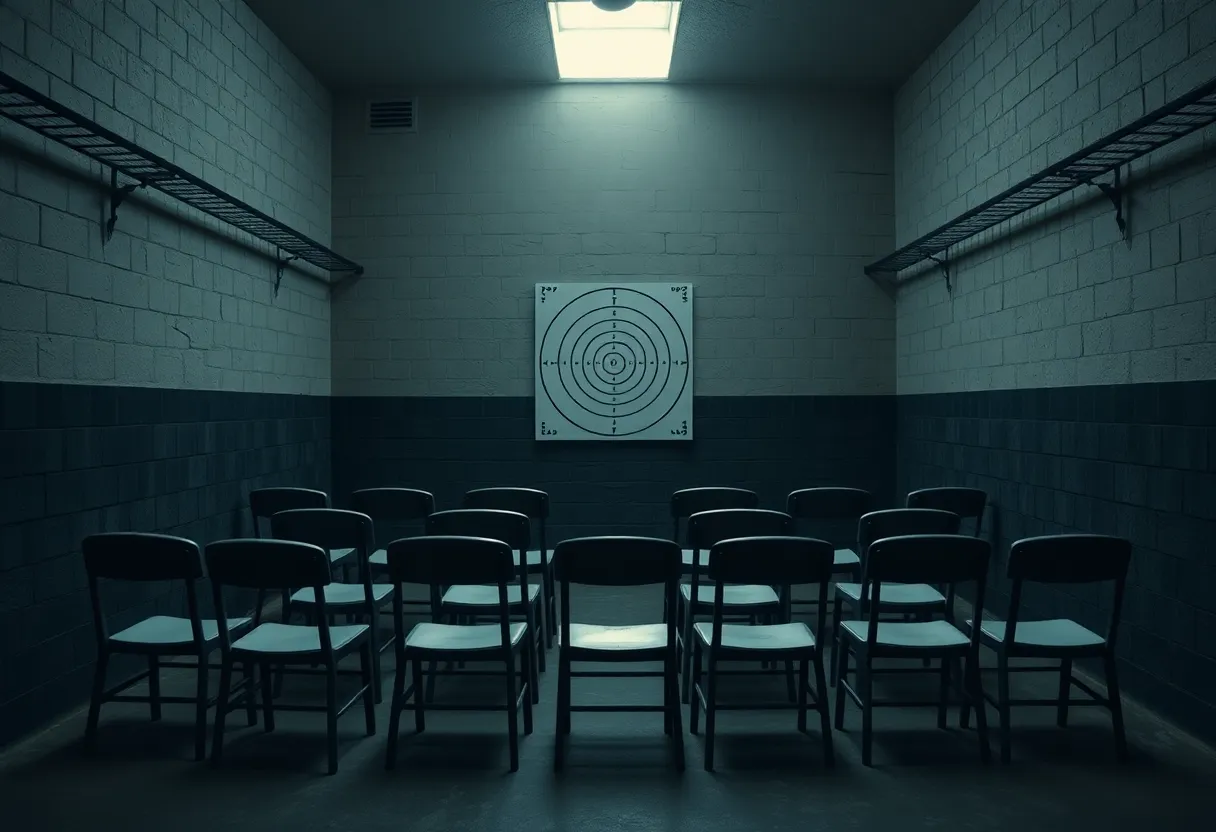News Summary
Brad Sigmon was executed by firing squad in South Carolina, marking the first use of this method since it was legalized in 2021. Sigmon’s execution has sparked controversy and renewed debates surrounding capital punishment, with critics condemning the violent nature of the execution. Despite his regret and a plea for clemency, no reprieve was granted. The case underscores ongoing concerns about the ethics of execution methods and the broader implications of capital punishment in America.
South Carolina witnessed a historic and controversial execution on Friday when 67-year-old Brad Sigmon was executed by firing squad. This execution marks the first time South Carolina has utilized the firing squad, which was legalized in the state in 2021, highlighting a significant shift in execution protocols amidst ongoing national debates about capital punishment.
Sigmon’s execution was carried out at 6:05 p.m., with the execution squad opening fire using .308 Winchester rifles. He was pronounced dead three minutes later. Dressed in a black jumpsuit, Sigmon was restrained in a chair, with his ankles shackled and a strap securing over his head. A target was placed over his heart, a detail that added to the already intense atmosphere surrounding the execution.
In his final statement, Sigmon called for an end to the death penalty and expressed regret for his earlier feelings of ignorance regarding justice at the time of his trial. He chose the firing squad as his method of execution, citing concerns over previous lethal injection executions in the state that had resulted in prolonged and distressing deaths. The execution has drawn sharp criticism, particularly from legal experts and advocates for humane treatment in capital punishment cases.
Critics of the firing squad execution have described it as overly violent, emphasizing that the method involves significant physical trauma, potentially “shattering bones and destroying hearts.” There was widespread attention on Sigmon’s case after South Carolina Governor Henry McMaster denied his clemency request just minutes before the execution began, leaving Sigmon without options for a reprieve. Outside the prison, around 30 protesters gathered, including the brother of the last person executed by firing squad in the United States, who is now an advocate against the death penalty.
Sigmon was convicted in 2002 for the brutal murders of his ex-girlfriend’s parents, William and Gladys Larke. Despite admitting his guilt and acknowledging that he deserved punishment, his defense team argued that the jury was not made aware of his extensive mental health history, which included bipolar disorder and a traumatic childhood. The South Carolina Supreme Court had previously rejected his last-minute appeal to stop the execution, signaling a challenging legal landscape for those facing capital punishment.
South Carolina resumed executions in September 2021 after a 13-year hiatus caused by a lack of lethal injection drugs, a situation reflective of increasing difficulties faced by states in carrying out executions. The state has also enacted a “shield law” that permits officials to keep the sourcing of execution drugs confidential, contributing to ongoing debates regarding transparency in the execution process.
Richard Harpootlian, the lawmaker who proposed the firing squad as an execution method, argued that it is a less barbaric alternative to methods such as the electric chair. However, scholars, including Deborah Denno, have suggested that firing squads may, in certain circumstances, be less inhumane compared to lethal injection or nitrogen gas. The reintroduction of firing squad executions elicits memories of historical practices that date back to the colonial era and the American Civil War, thus intertwining contemporary discussions of capital punishment with a long legacy of execution methods in the United States.
Sigmon’s execution has raised significant questions about the efficacy and humanity of current execution protocols in South Carolina and beyond. Despite the state’s push to reinstate capital punishment using revised methods, many advocates fear that issues of prolonged suffering and ethical treatment continue to persist within the system, highlighting the ongoing debate surrounding the death penalty in American society.
Deeper Dive: News & Info About This Topic
Author: STAFF HERE CLINTON
The CLINTON STAFF WRITER represents the experienced team at HEREClinton.com, your go-to source for actionable local news and information in Clinton, Laurens County, and beyond. Specializing in "news you can use," we cover essential topics like product reviews for personal and business needs, local business directories, politics, real estate trends, neighborhood insights, and state news affecting the area—with deep expertise drawn from years of dedicated reporting and strong community input, including local press releases and business updates. We deliver top reporting on high-value events such as the Festival of Discovery, Clinton Community Day, and performances at the Whitten Center Amphitheater. Our coverage extends to key organizations like the Clinton Area Chamber of Commerce and the Laurens County Historical Society, plus leading businesses in manufacturing and education that power the local economy such as Milliken & Company and Presbyterian College. As part of the broader HERE network, including HEREAiken.com, HEREBeaufort.com, HEREChapin.com, HERECharleston.com, HEREClinton.com, HEREColumbia.com, HEREGeorgetown.com, HEREGreenwood.com, HEREGreenville.com, HEREHiltonHead.com, HEREIrmo.com, HEREMyrtleBeach.com, HERENewberry.com, HERERockHill.com, and HERESpartanburg.com, we provide comprehensive, credible insights into South Carolina's dynamic landscape.






